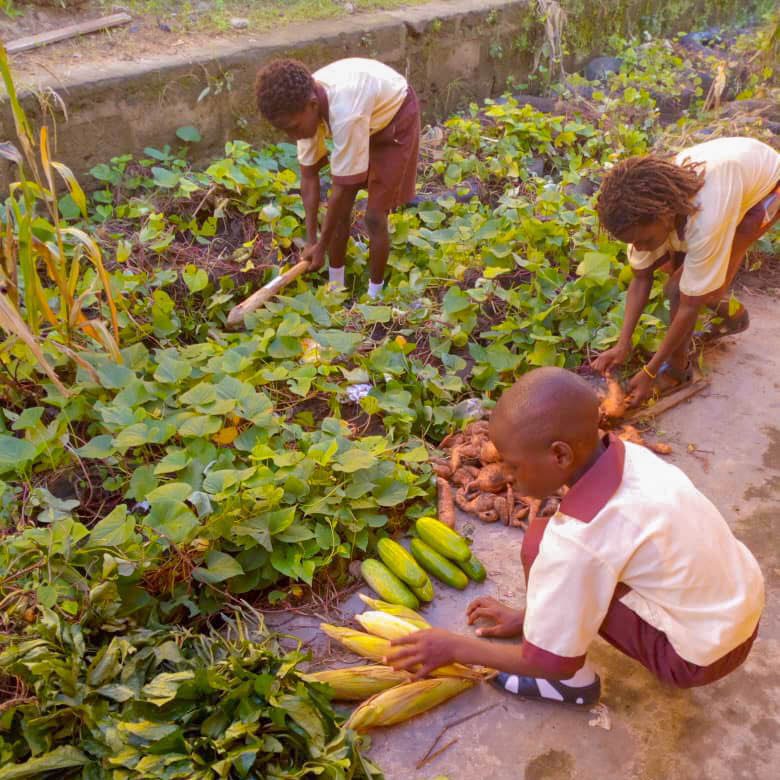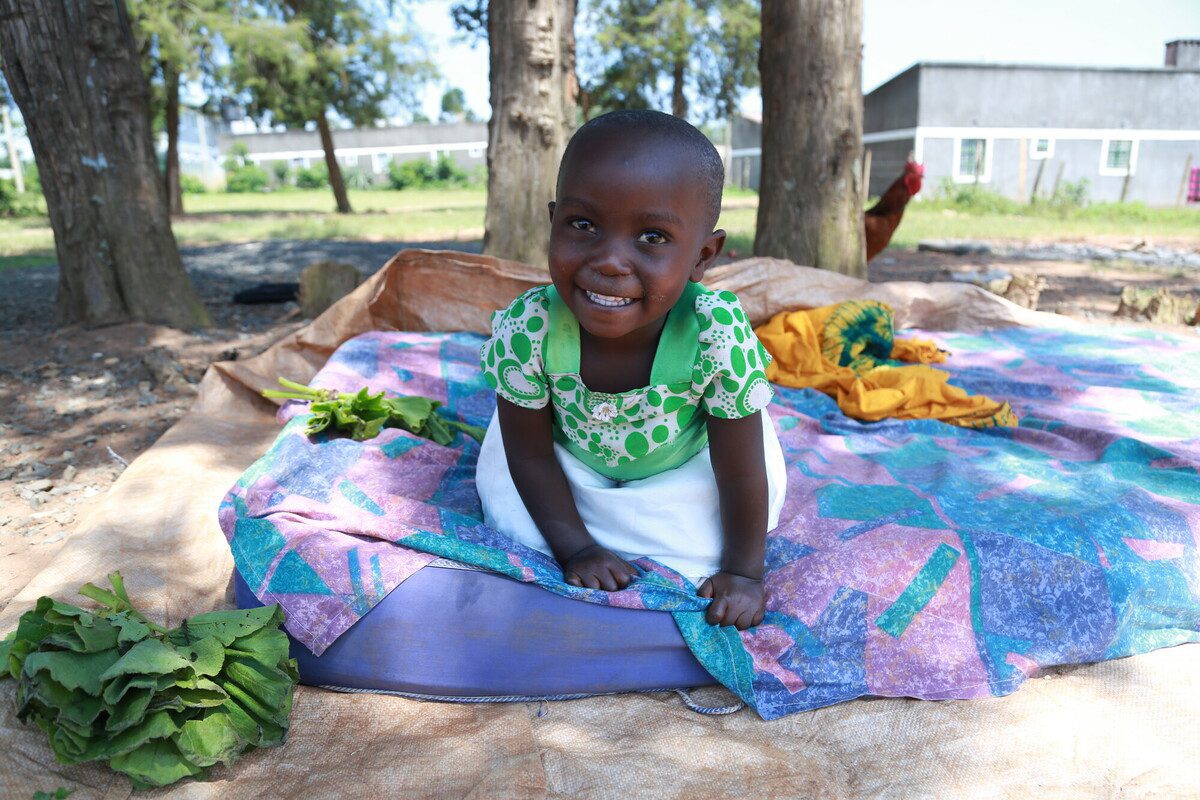Taking Action to Combat Hunger
In just three years, the ravages of COVID-19 reversed decades of progress in the fight against malnutrition. Compounded by the damaging effects of climate change and armed conflicts, most notably in Ukraine, this crisis fuels increased threats of famine in vulnerable communities. The United Nations estimates 345 million people worldwide face severe food shortages — nearly triple those affected before the pandemic.
Children remain most at risk: Malnutrition is the greatest cause of child mortality worldwide, claiming more young lives than AIDS, malaria, tuberculosis, and COVID combined. This daunting reality is starkly apparent in the low-income countries where Helen Keller Intl works.
Best practices for health and nutrition are within reach – with the right support
The first 1,000 days of a child’s life — birth through age two — are a critical period, when healthy children gain weight, grow taller, and acquire language and motor skills. Without the right nutrition, however, children cannot develop properly, physically or cognitively, creating lifelong obstacles to success and potential. Fortunately, there are simple, cost-effective solutions to help children thrive.

Helen Keller ensures women have access to nutritious foods while pregnant — and nutritious foods they can feed their babies once they arrive. From breastfeeding education and dietary counseling to essential nutritional supplements, we provide the tools families need at every stage of development.
In Nepal, where more than 30% of children are malnourished, our research shows that the best solution is helping mothers-to-be learn the crucial importance of good nutrition before, during, and after pregnancy. To deepen collaborations and build trust, we train local women to guide young mothers in making sound food choices. This includes eating more carrots, cabbages, and tomatoes to ensure babies benefit from nutrient-rich breast milk. To date, Helen Keller has reached 180,000 households with this support.
Widespread misinformation about breastfeeding is also being addressed. A joint study by Helen Keller and Nepal’s Ministry of Health found more than 40% of new mothers reported that hospital staff had recommended infant formula, not breastmilk, for their newborns. In response, Helen Keller now trains nurses to educate mothers about the benefits of exclusive breastfeeding during the first six months of a child’s life, emphasizing it’s the safest, most economical, and healthiest foundation for babies’ development.
Improving access to quality foods through home gardening

Even when bellies are full, however, foods may lack adequate nutrition. Consumption of “empty calories” is a growing problem in many poor communities. In the Lagos region of Nigeria, our experts teach the benefits of healthy eating through school-based programs that promote home gardening and physical activity. To combat the dual epidemics of malnutrition and obesity, Helen Keller provides schools and families with seedlings and tools, hosts cooking demonstrations, and refurbishes playgrounds.
In parts of Senegal, where people live on less than $2 a day, vitamin A deficiency is exceedingly high. But thanks to generous friends, Helen Keller wellness visits provide vitamin A supplements to children every six months through age five. As a result, child mortality rates have dropped nearly 25%. In addition, Helen Keller recently surveyed parents and other caregivers to enhance culturally-sensitive nutrition coaching that offers families deeper insights about choosing nutrient-rich foods.
Following the recent military coup, Myanmar has seen a startling increase in severe food shortages, spiking from 800,000 people affected to more than 13 million in the past year. Helen Keller’s team supports women, who are at the center of our work, in one of the hardest-hit areas with training and tools to grow more nutritious crops, raise poultry and other livestock. This helps mothers build more varied diets for themselves and their children, while generating additional income and supporting their neighbors’ nutrition by selling surplus produce and eggs.
Creating Hope — Together
As Helen Keller reminds us, “Although the world is full of suffering, it is also full of the overcoming of it.” Even as the combined impacts of COVID-19, climate change, and conflicts continue disrupting lives and increasing the challenges so many face, you too can take action and be part of the solution.
Thanks to our generous community, Helen Keller delivers the essential building blocks of good health and sound nutrition to millions of people in more than 20 countries. You can be part of this community, helping adults and children create lasting change in their own lives and reach their true potential.

YOU can make a vital difference in the fight to end hunger.









